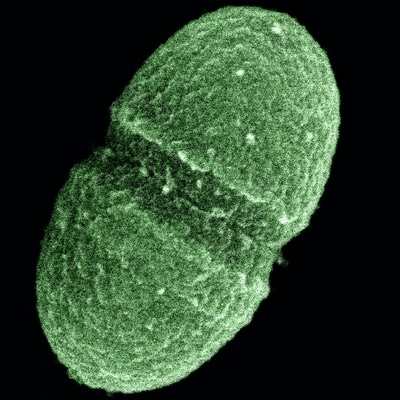
Colorectal cancer (CRC) is a type of cancer that starts in the colon or rectum. According to the CDC, CRC represents the 3rd leading cause of cancer deaths and the 3rd most commonly diagnosed cancer type among men and women in the United States.
One way that CRC can develop is chronic inflammation, as in the case of inflammatory bowel diseases (IBD). Because the immune system is activated when there is inflammation in the body, many studies have tried to figure out how the immune system is involved in inflammation-associated CRC development and progression. It is known that certain immune cells have anti-tumor activities. For example, tumors that contain more CD8 T cells (a type of immune cell) are associated with a better CRC prognosis.
One factor that influences the quantity and activity of immune cells in tumors is the gut microbiota. The term 'gut microbiota' refers to all the microbes (bacteria, fungi, protozoa, and viruses) that live in our digestive tract. The composition of the gut microbiota varies among people and is influenced by many factors, including infections, medications, diet, and genetics. Interestingly, CRC patients are known to have changes in their gut microbiota, compared to healthy individuals. The changes make diseases more likely and are known as gut microbiota dysbiosis. Examples of dysbiosis in CRC patients include having less of some kinds of bacteria (i.e. Firmicutes) and more of other kinds (i.e. Bacteroidetes). The relationship between dysbiosis, the immune system, and CRC development is an active area of research.
A recent study done using mouse models found that gut microbiota dysbiosis increases the risk of developing inflammation-associated CRC. For reasons currently unknown, dysbiosis led to an above-normal level of active CD8 T cells in healthy colonic tissue. This overactivity resulted in CD8 T cell exhaustion, where these immune cells were no longer able to work properly to protect against cancer-promoting factors. The tumors that subsequently developed were found to have below-normal levels of CD8 T cells.
This study highlights the importance of our gut microbiota. Healthy gut microbiota work with our immune cells to protect against CRC development, but dysbiosis can strain our immune cells and help lead to CRC development. Further studies are necessary to determine the mechanisms by which dysbiosis increases CD8 T cell levels and lead to their exhaustion.
https://en.wikipedia.org/wiki/Enterococcus_faecalis#/media/File:Enterococcus_faecalis20023-300.jpg
http://www.genome.gov/dmd/img.cfm?node=Photos/Microorganisms&id=79092
